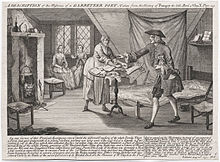...that is the question.
For the last two years I have taken part in the National Novel Writing Month (nanowrimo - or nano), a month long event where each member tries to write 40,000 words of a novel. At the end of every November I have sworn that it would be the last one.
Not that the pure wordage of the challenge puts me off, I enjoy the deadline to write my 40,00 words, it gives me an arbitrary date to write by and I’ve always found such dates useful.The problem comes from the fact that I disagree with almost every aspect of nanowrimo.
The focus of nano is quantity over quality. People say that it doesn’t matter what is written, as long as there are words on the page. The justification being that a novel is no good in the head and once it is down on paper, however patchily, it can be edited and improved but I personally see no point in rushing to create rubbish you only plan on changing later. I always sit at my desk hoping to write something wonderful. I know I do not often achieve something wonderful but if I were to sit down with the aim of writing merely something, anything, then I would not sit down at my desk at all.
In a drive to maximise quantity, it promotes a very mechanistic ‘cookie cutter’ guide to novel construction.
Characters are created by vast character sheets in which the writer lists down every excruciating detail of the character; from eye-shape to chin-size, the names of whatever psychological disorder they may be suffering from, their favourite pop song and a catch phrase that sums them up. There is a particularly extensive one here.
What seems to be forgotten in this process is that much as you can’t get to know a person by a long list of details, nor can you discover a character. To really know a character you need to see them acting (or not acting) to the stimulus of the plot. Even if you disagree with Satre, a character is defined by action.
Then there is the notion of plot. These are to be copied wholesale from various online sources, the most popular of which is ‘The Hero’s Journey’ in its various forms. Others use the Snowflake Method, others pick some other pattern. Maybe it is a very useful method but I find it so prescriptive; preferring to take an idea that interests me, ask questions about it and then knock it into shape and call it a plot.
Of course, if you are stuck, then you can employ a plot ninja. Here is the description of one…
A plot ninja is something that is inserted into the plot when the writer finds him- or herself at a loss for what to do next, or when their characters are bogging down in dull conversation rather than doing anything interesting.
Now, in my first novel I had something like this happen. I had a scene set in a cinema where a really boring film was playing. So boring the character plays around with his need for a wee. Unfortunately, his need climaxes at the moment a gang of ninjas jump through the window in the film and he has to decide between wetting himself or watching the excitement on screen. I think I might have grown out of that phase. I think that something so unexpected would have to be the most planned so it doesn’t seem completely ludicrous.
The project has developed a completely different language for discussing narrative, character and storytelling, most of which I find quite ugly. First there are genres, many people write YA and NA some write YNA. On top of that, they don’t have protagonists they have MCs or MMCs or MMMC’s (to differentiate between the MFMC’s). They also have BFs, BGs, LBs and all number of letters.
I work in a school, I get enough bland-empty acronyms in my life. Maybe I’m just a bit of a snob.
My final beef is that conversation on the forums reveal pretty clearly that in nano-land, there are far more people writing books then reading them. I don’t really consider myself a writer, I consider myself a reader who stuffs his head with so many words that occasionally they are re-constituted and vomited back out, so I find it odd to be on a forum where so many writers foreswear from reading a book during the writing time incase it influences what they are writing.
So, why am I doing it again? The answer is simple: comradeship.
For a month in the year there is a forum full of people talking about story, research, plots and characters - so what if they talk about them in different ways, the talking is still happen. In London people meet up to chat and write side by side, I even went to an event where the writing took place from 7pm to 7am, with plenty of breaks to chat and compare notes.
In this lonely quest to write a book that might get some reading (and my goodness doesn’t it feel lonely today), I will probably band once again with all the other hobbits and miscellaneous misshapen souls and nano once more.













